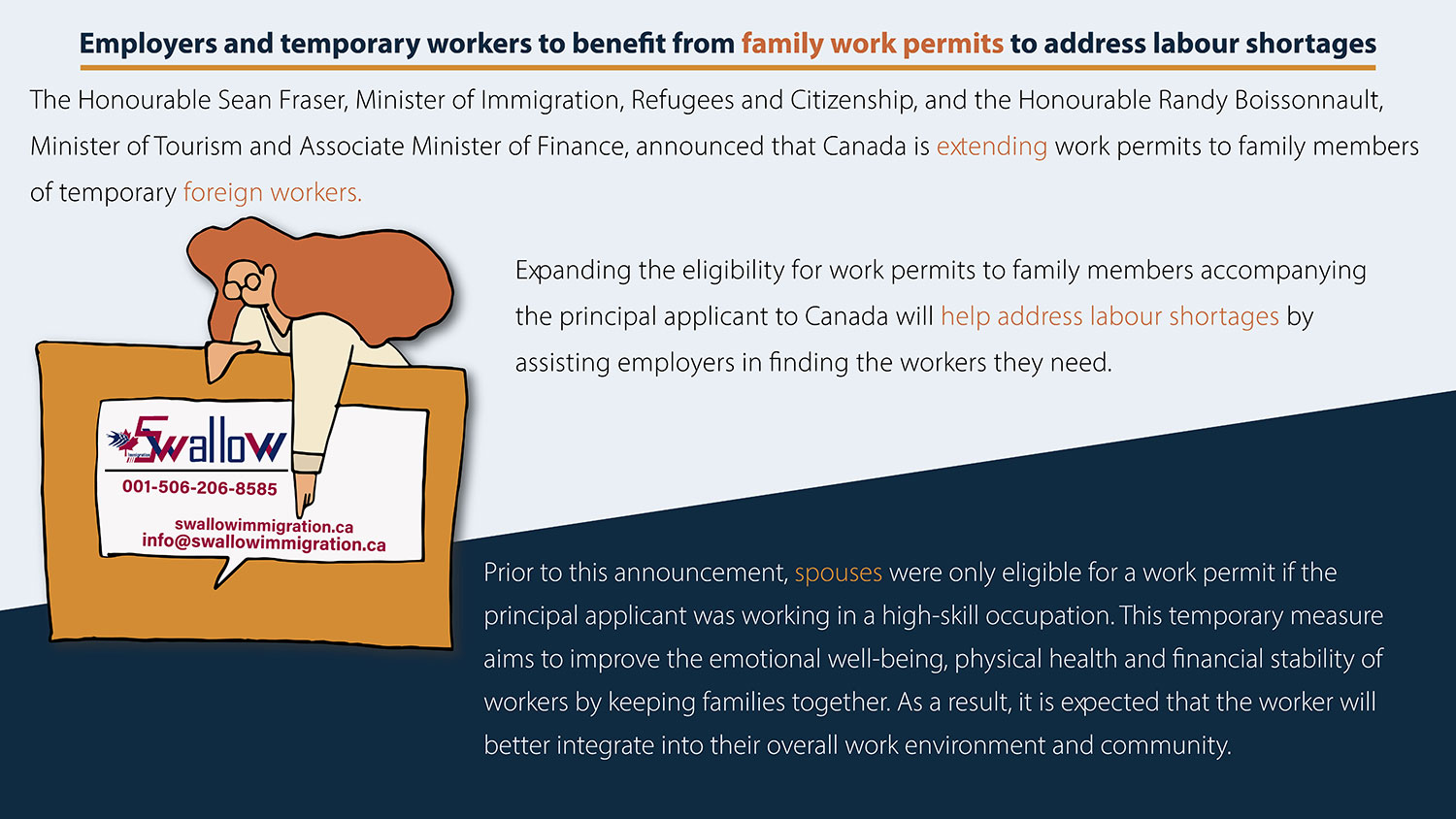
Employers and temporary workers to benefit from family work permits to address labour shortages
The Honourable Sean Fraser, Minister of Immigration, Refugees and Citizenship, and the Honourable Randy Boissonnault, Minister of Tourism and Associate Minister of Finance, announced that Canada is extending work permits to family members of temporary foreign workers. Expanding the eligibility for work permits to family members accompanying the principal applicant to Canada will help address labour shortages by assisting employers in finding the workers they need.
Prior to this announcement, spouses were only eligible for a work permit if the principal applicant was working in a high-skill occupation. This temporary measure aims to improve the emotional well-being, physical health and financial stability of workers by keeping families together. As a result, it is expected that the worker will better integrate into their overall work environment and community.
Starting in January 2023, through a temporary 2-year measure, Canada will expand eligibility to work in Canada to spouses and working-age children through a phased approach for workers at all skill levels. This would include families of workers in health care, trades and hospitality, for example. As a result of this new approach, it is estimated that family members of more than 200,000 foreign workers could begin working in Canada, offering a greater opportunity for both foreign workers seeking to work in Canada and for employers addressing their labour needs.
The temporary measure will be implemented in 3 phases to ensure its successful implementation:
- Phase 1 will enable family members of workers coming to Canada through the high-wage stream of the Temporary Foreign Worker Program or the International Mobility Program to apply for an open work permit .
- Phase 2 aims to expand the measure to the family members of workers from the low-wage stream of the Temporary Foreign Worker Program, following consultations.
- Phase 3 will include consultation with agricultural partners and stakeholders to assess operational feasibility for expanding the measure to family members of agricultural workers.
For more information follow the link below:

